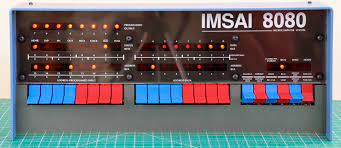What is the difference between an interpreted language and a compiled language?
saukrit 0 Newbie Poster
Recommended Answers
Jump to PostA compiled language (C, FORTRAN,...) is converted to a directly machine executable form once before it is executed many times. An interpreted language (BASIC, Python,...) is converted at every execution. In some cases source files are converted once to an intermediate form (bytecode, etc) and saved before execution so that …
Jump to PostSome languages are "both." Python, for example, can be executed as either a compiled program or as an interpreted language in interactive mode.
Jump to PostAs far as I know, Python compiles scripts into a folder with a name like pycache. The sorta-compiled code is actually bytecode which is easier for the runtime to process, but the bytecode is still interpreted. When you install python you are given the option to pre-compile the standard packages.
Jump to PostOK. How about this. A compiled program is one you use without having access to the source code. It's also a program that does not have to be repeatedly parsed during execution.
All 16 Replies
Reverend Jim 5,242 Hi, I'm Jim, one of DaniWeb's moderators. Moderator Featured Poster
rproffitt 2,701 https://5calls.org Moderator
Reverend Jim 5,242 Hi, I'm Jim, one of DaniWeb's moderators. Moderator Featured Poster
Dani commented: PHP also caches scripts in memory +34
rproffitt 2,701 https://5calls.org Moderator
Reverend Jim 5,242 Hi, I'm Jim, one of DaniWeb's moderators. Moderator Featured Poster
rproffitt commented: Bytecode, machine code, etc. is slicing it thinly as it's is possible to have a CPU that understands bytecode. Look at Intel microcode updates. +17
Dani 4,675 The Queen of DaniWeb Administrator Featured Poster Premium Member
Reverend Jim 5,242 Hi, I'm Jim, one of DaniWeb's moderators. Moderator Featured Poster
rproffitt 2,701 https://5calls.org Moderator
Reverend Jim 5,242 Hi, I'm Jim, one of DaniWeb's moderators. Moderator Featured Poster
rproffitt 2,701 https://5calls.org Moderator
Reverend Jim 5,242 Hi, I'm Jim, one of DaniWeb's moderators. Moderator Featured Poster
Dani 4,675 The Queen of DaniWeb Administrator Featured Poster Premium Member
Mindmade -7 Junior Poster in Training Banned
jeanetta_neda 0 Newbie Poster
rproffitt 2,701 https://5calls.org Moderator
Reverend Jim 5,242 Hi, I'm Jim, one of DaniWeb's moderators. Moderator Featured Poster
Be a part of the DaniWeb community
We're a friendly, industry-focused community of developers, IT pros, digital marketers, and technology enthusiasts meeting, networking, learning, and sharing knowledge.

